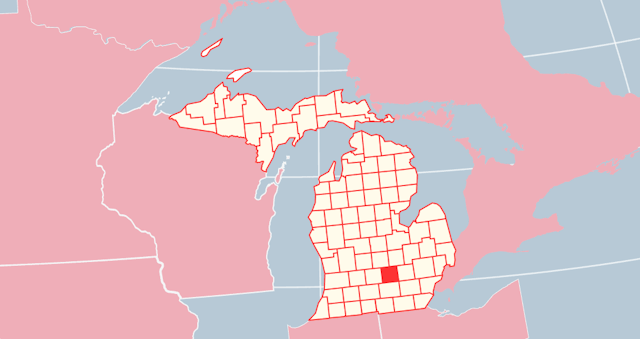Rehabs in Ingham
The American state of Michigan is home to Ingham County. In this area, as of the 2010 census, there were 280,895residents, 111,162 homes, and 62,674 families. Mason is its seat.
Alcohol misuse, the opioid crisis, and drug overdoses are just a few of the substance use issues that exist there. A solution must be found to undo the harm that all of these problems have done to the county.
Thankfully, the region’s community can use a number of services and programs, including outpatient treatment, substance use counseling, preventative initiatives, teenage addiction treatment, and addiction support groups.
To learn more about the rehabs in Ingham County, read this article. It will help you be aware of how to take care of yourself or your loved ones.
Drug and Alcohol Abuse
The opiate crisis is the first problem. It has done a lot of damage on its own. For instance, according to information from the Opioid Surveillance, 52 deaths involving opioids occurred between January and October 2019. The use of alcohol has also had a bad impact on this area. According to County Health Rankings, alcohol-impaired driving was the first cause of 32 deaths between 2013 and 2017.
Then, they asked people about binge or heavy drinking. A study of residents in Ingham revealed that 24% of them had engaged in such behavior. The overdoses are a final concern. Between 2015 and 2017, they resulted in 215 fatalities per 100,000 people. So, these numbers only serve to shore up the need for action to effectively address these problems.
Inpatient
Inpatient rehabilitation clinics are places where you would stay for a specific period. Residential care centers are another name for inpatient rehab facilities. One advantage of an inpatient care plan is that you may get help there 24 hours a day, seven days a week.
Outpatient
Treatment that does not call for overnight stays or permanent living arrangements is part of most outpatient recovery plans. A typical outpatient program allows you to continue working or attending school while receiving therapy. Less than 9 hours of therapy are provided every week for up to 3 months in outpatient rehab.
Partial Hospitalization Program
While offering thorough care, partial hospitalization treatment also provides you the right to spend each night in your own home once your treatment is complete. Rehabilitation programs that involve partial hospitalization often give the same level of intensity as inpatient care programs. The majority of PHP provide at least 20 hours a week of therapy.
Efforts to Prevent Substance Use
Numerous services and initiatives are available that greatly help to avoid narcotics. The Ingham Opioid Abuse Prevention Initiative (IOAPI), which includes law enforcement, as well as medical experts, and other specialists, is the first one. They gather information on the opiate crisis here. Then, they create plans to reduce opioid misuse.
Families Against Narcotics (FAN) is an organization that works to raise public awareness of the risks associated with prescription drug abuse.
The ISAP Coalition is another organization. Its mission is to reduce the use of alcohol by lowering risk factors and enhancing protective ones.
The Tri-County Metro Narcotics Squad, which unites the resources of three Michigan counties, including Ingham, has the final word. Their goal is to identify narcotics traffickers operating inside the counties.
To create Ingham a better environment to live in, all of these groups' efforts go a long way toward preventing substance misuse.
What Comes After You Complete Rehab?
Rehabs are one step on the road to sobriety for life. Although in-patient treatment is frequently insufficient on its own, it can help stabilize the signs of substance misuse or mental health issues. After completing a 30, 60, or 90-day recovery program, patients also withdraw from a stable environment and ongoing support.

